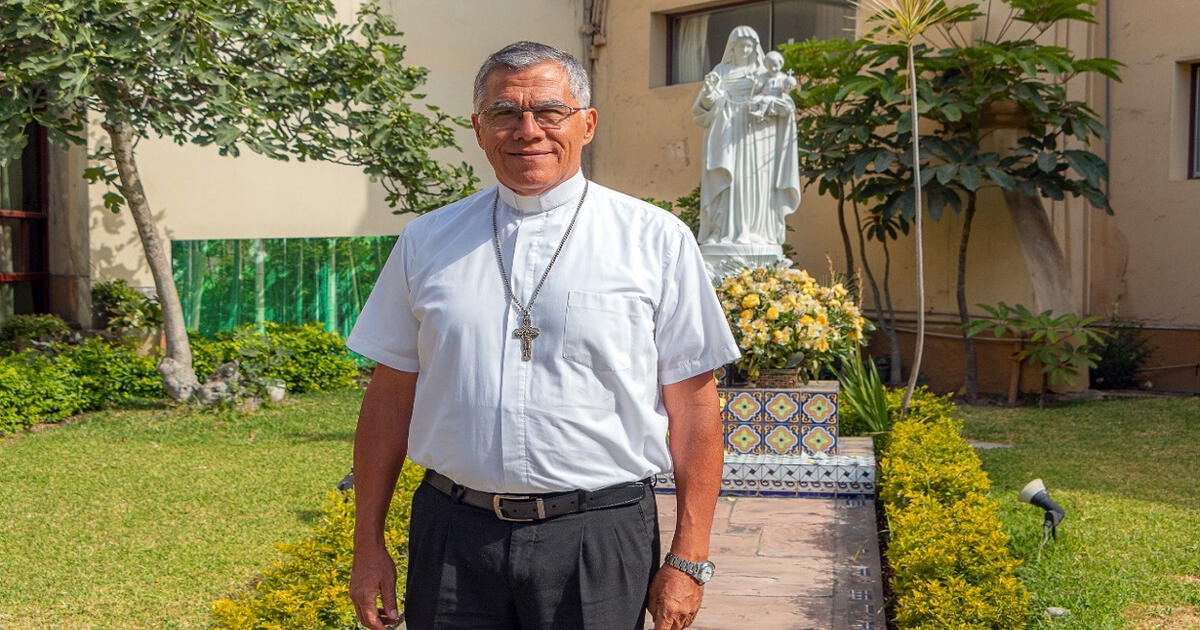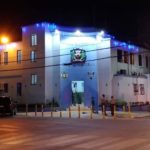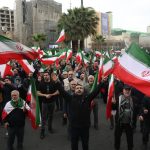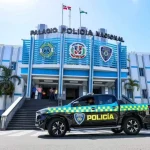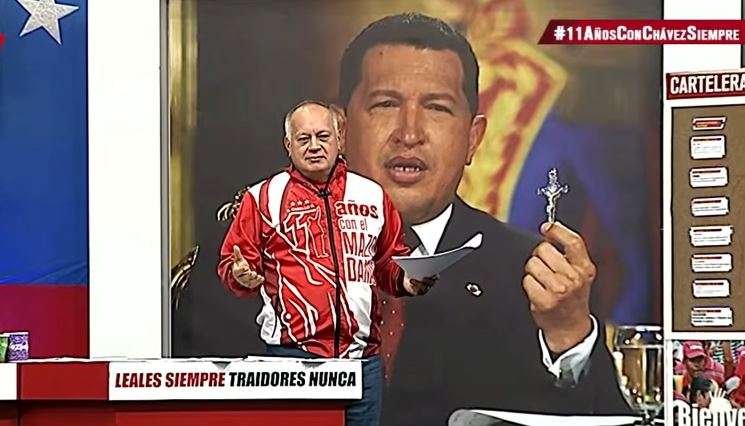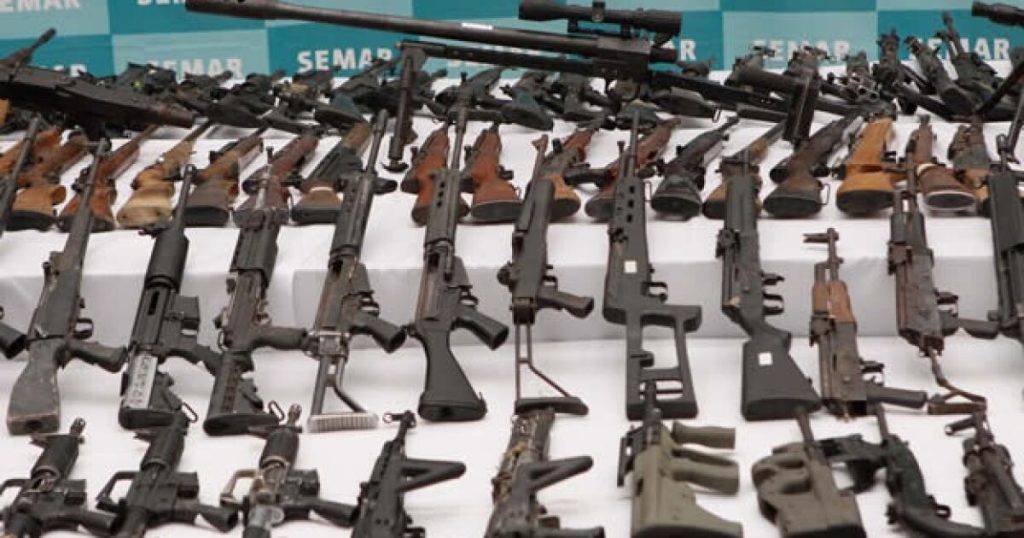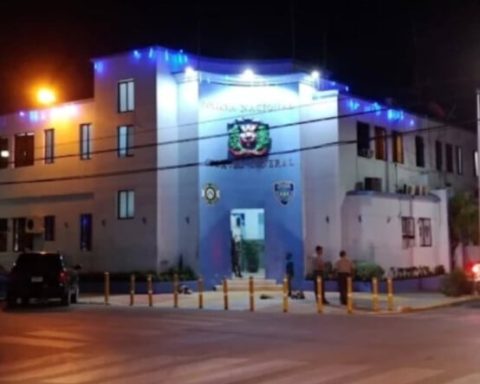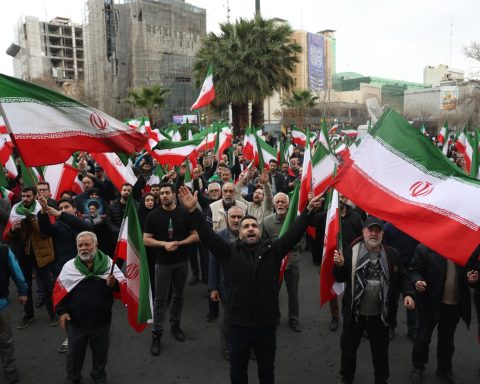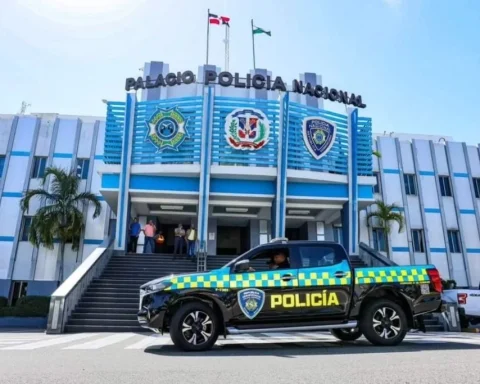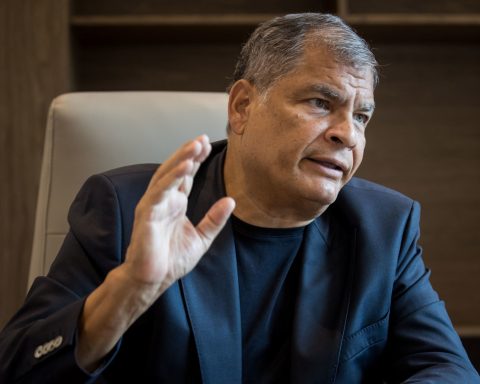On February 22, Alfredo Vizcarra will assume as a new archbishop of Trujillo in replacement of Miguel Cabrejos. In this conversation he talks about his experience in Africa and the Peruvian jungle, attacked by illegal mining. It also refers to the crisis of insecurity in Trujillo and the impact of the Sodalicio case on the hierarchy of Peruvian Catholicism.
Most of his career as a pastor has done it in rural media, especially in Africa. How did he get to that distant place?
Well, all these things I have not looked for, they are simply proposals that were presented in my life and those that I expressed my availability. So I went to Africabecause there was a need for the Jesuits. French brothers should be replaced.
What country was it in?
I was in him Chad.
Do you feel that this experience in rural media, in Africa, even right now, in the jungle, gives you a different look to work in a city as large as Trujillo?
What I think is that this experience, especially the Chadiana, has trained me for adaptation, has given me a certain flexibility and ability to be willing to hear already knowing looks from different angles, because the Africa was a very strong change. I had to make the effort to learn Arabicto live in difficult situations. I was in the Sahel all the time, that is, in the semi -desert. They are very different worlds, with behaviors and approaches to human situations from other perspectives. You have to do an exercise to disassemble our gaze to enter their world and understand why they do things.
You get to a very complicated stage. Trujillo today is a city besieged by criminal violence. How can the Catholic Church help in this situation?
It is a very difficult question, because, on the one hand, it does not correspond to me directly, I have no authority or decision -making power to look for response paths to this problem. What I do believe, as I said before, I will be willing to collaborate. In addition, I think it is not enough to have a repressive approach to these problems. These things do not arise just. They have their causes, there are social situations that are degenerating. And, in addition, there are situations of corruption, of Lack of State presencewhich is allowing more and more than things to degenerate.
The violence in Trujillo areas has its origin in economies outside the law, such as illegal mining, which you have already seen in Jaén. What is the worst that this type of economies bring?
Well, we are in a very critical situation. The entire territory of the Vicariate (from Jaén), which includes two provinces of the Cajamarca region: Jaén and San Ignacio; a province of the Amazon region, which is Condorcanqui; and two districts of the province of Bagua, in the Amazon region; All that is invaded by illegal mining. And it is disastrous, not only because of the damage that is causing nature. We had the Chinchipe river here, which when it did not rain was clean and crystalline. Well, we don’t see that anymore. Last year, we only saw a brown chinchipe river, for pollution. And there are other situations. Students are not going to school for going to the mine. The pawns the same, because they pay 400 soles for four hours of work. And everything is being seen from an immediate and economical point of view. I understand the needs, but the price paid is very strong and is generating a chain of harmful events. If the mine appears, for example, there is already the canteen and prostitution.
Now he will touch a similar situation in Trujillo, with what happens in Pataz.
That’s how it is. There is, in addition to everything we have named, the Violence of armed groups. Here we are not yet with that problem, although some things have already happened. And the question is: And where is the state? What is the development policy for the jungle? We ask ourselves the bishops.
His arrival in the Archdiocese of Trujillo occurs at a complicated moment for the Catholic Church. Decisions have been made on the issue of sodalicio. This organization has just been sanctioned and some religious have also been suspended for this issue. Do you feel that the Church could have had a better response to the complaints of the victims against this group?
It is very delicate. I can give an opinion and it may be unfair to ourselves, but it is not in the eagerness to want to look good with the victims or people. There was a kind of ignorance on the subject and we did not have an initiative as bishops and, well, things were left in the field of jurisdiction concerned and now. And then we did not know more, there was no initiative to want to know more and see this as a problem of the Church and not just a part, because this touches the entire Church, not only to its authorities. We did not have enough initiative to serve the victims. We did things, but it hasn’t been enough. And this is a Mea guiltwith a lot of pain, because The damage that has been caused directly affected by families has been very much.
Do you feel that the exit of your predecessor, Monsignor Cabrejos, is due to this situation? It is said that he, when he was president of the Episcopal Conference, did not attend the claims and orders of the victims.
I can’t say anything with certainty about this, honestly. I could not say if he attended them or did not attend them, I don’t know. I do believe what I just told him a moment. Things have been done. From here the Vatican has been informed a lot and that is very good, but it is for the Vatican. But in the face of the Peruvian population, the victims were also made, because they have been heard, but as I said before, insufficiently. We had to interest ourselves more, learn more about the subject, and we did not do that.
